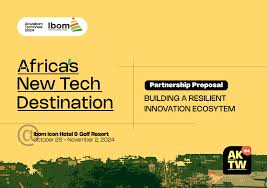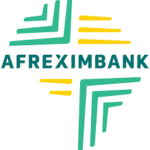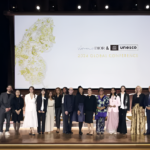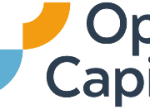This challenge seeks to harness the ingenuity of tech enthusiasts, developers, and innovators to develop digital solutions to pressing challenges facing Akwa Ibom State across various sectors of the economy.
The Akwa Ibom Tech Week is an annual event aimed at fostering innovation, technology adoption, and digital transformation within the state. As part of the 2024 edition, we are organizing a Hackathon centered around the theme “Building a Resilient Innovation Ecosystem”. The Hackathon seeks to harness the ingenuity of tech enthusiasts, developers, and innovators to develop digital solutions to pressing challenges facing Akwa Ibom State across various sectors of the economy.
The Challenges
- Accessible Mobility Solutions for Wheelchair Users in Aviation
- Energy Transition
- Hardware Innovation Made In Akwa Ibom
- Cost-Effective Population Census in Akwa Ibom State
- An Innovative AI-Powered Tourism Solution
- Transforming Agricultural Waste into Sustainable Value
- Innovative Solutions for Elderly, small scale Farmers in Akwa Ibom State
Accessible Mobility Solutions for Wheelchair Users in Aviation
The Problem
Air travel is a vital mode of transportation, connecting people across distances, but passengers with limited mobility, particularly wheelchair users, often encounter significant obstacles when boarding smaller aircraft, such as the CRJ 900. These aircraft typically feature narrow steps, making the boarding process uncomfortable, undignified, and sometimes even unsafe for passengers with mobility challenges. Current methods—often involving manual lifting by ground staff—are inefficient and can be disempowering, affecting the travel experience of wheelchair users.
Opportunity
This challenge invites innovators to develop solutions that improve accessibility for wheelchair users boarding small aircraft, especially those with narrow steps. The goal is to rethink the boarding process, prioritizing safety, dignity, and efficiency.
Participants can explore areas such as:
- Assistive Technology: Designing devices or mechanisms that simplify boarding and disembarking
- Boarding Infrastructure: Modifying aircraft or terminals without major disruptions.
- Human-Centered Design: Creating ergonomic systems for comfort and dignity.
- Portable Solutions: Developing adaptable, transportable solutions that can be applied across different aircraft types.
- Automation/Mechanization: Introducing automated or semi-automated systems to reduce the need for manual handling of passengers.
Challenge
Design a mobility solution that helps wheelchair-bound passengers board aircraft such as the CRJ 900, addressing challenges like narrow steps.
Key criteria include:
- Safety: Minimize physical handling and ensure passenger safety.
- Efficient: Enable quick, seamless boarding without causing delays.
- User-Friendly: Ensure passenger comfort and dignity.
- Scalable: Adaptable for various aircraft and airport environments.
Deliverables:
- Prototype or Concept Design: Detailed description of the solution.
- Implementation Strategy: Real-world execution plan.
- Feasibility and Cost Analysis: Practical and financial considerations.
- Submit a Demo Video (up to 120 seconds) showcasing the concept’s functionality, and all submissions must be in PDF (max 10 pages).
Prize: ₦1,000,000
Submission Format
- YouTube Video Link (Unlisted YouTube Link)
- PDF Document (Max 10 pages)
Eligibility
- Affiliated to an Akwa Ibom Tech/Innovation Hub
- Available to attend Akwa Ibom Tech Week (Oct 28 – Nov 2, 2024)
- Team of min 2, max 5 persons
Timelines
- Sep 28 – Oct 18: Innovation Challenges Open
- Oct 19 – Oct 29: Evaluation, Selection & Notification of Finalists/Winne
The Problem
Nigeria’s energy transition faces significant challenges, including inefficient power usage, reliance on fossil fuels, and limited adoption of clean technologies. Smart energy solutions like smart sockets could optimize consumption, reducing wastage, but adoption remains low. There’s also a need for breakthroughs in advanced energy materials to better harness renewable resources. The country’s heavy dependence on fossil fuels in transport demands e-mobility innovation, while its vast agricultural resources are underutilized for biofuel production. The Energy Transition Innovation Challenge seeks to drive sustainable solutions in these areas, addressing energy inefficiency, pollution, and fostering economic growth.
Opportunity
The energy transition presents a vast opportunity for Nigeria to leapfrog traditional energy systems by embracing innovative technologies. Smart sockets can revolutionize energy efficiency in homes and businesses, reducing wastage and cutting costs. Advancements in energy materials could unlock Nigeria’s renewable potential, enabling more effective use of solar, wind, and biomass resources. The shift to e-mobility offers a sustainable alternative to fossil-fuel-driven transport, reducing pollution and creating green jobs. Furthermore, scaling up biofuel production from Nigeria’s agricultural resources can drive rural development, create sustainable energy sources, and reduce the country’s dependence on fossil fuels.
Challenge
The identified challenge is Nigeria’s struggle to transition from inefficient, fossil fuel-dependent energy systems to sustainable, modern alternatives. The country faces significant energy inefficiencies, with outdated infrastructure leading to chronic power shortages and wasteful consumption. Moreover, reliance on conventional energy materials and fossil fuels in transportation contributes to pollution and high greenhouse gas emissions. Innovation is needed in four key areas: smart sockets to optimize energy usage, advanced energy materials for renewable energy solutions, e-mobility to reduce fossil fuel reliance in transport, and biofuel production to harness Nigeria’s vast agricultural resources for clean energy.
Prize: ₦750,000
Innovative Solutions in Hardware in Akwa Ibom State
The Problem
Akwa Ibom is a state with the majority of the revenue coming in from the oil and gas. It is essential for the local manufacturing industry to be stimulated, and for local, globally relevant hardware to be built locally.
There is a need for young researchers to develop home-grown solutions where the IP and the manufacturing lies in local hands. This hardware needs to solve locally relevant problems.
Opportunity
With local manufacturing growing, particularly in globally needed areas, Akwa Ibom will be able to compete on the global stage, and become a net exporter of manufactured goods.
Just like China has been able to develop a local manufacturing base, so can Akwa Ibom do the same. This brings in a lot of new revenue, gives jobs to people, and promotes the development of a local innovation eco-system
Challenge
This challenge, sponsored by the Victoria Ekanem Memorial, invites local hubs to come up with creative, innovative hardware solutions that can be deployed to solve global problems. The solutions should be scalable, have commercial viability, and should potentially lead to investable companies.
The solutions should address a local problem, and focus on solutions that can also be built locally. There should be a significant innovation portion of the solution. There should be a clear pathway to commercial viability.
Constraints:
- All solutions must be practical – i.e they must be based on existing technology
- All solutions must be viable
- All solutions must use materials that area easily available within the west africa region, e.g metal, motors, etc
Deliverables
- Each hub is to design out their innovation and the top submissions will be funded with a startup capital of N300,000.
- The startup capital should be used to build out the solution to a state that it is workable and can be demonstrated on our presentation day.
- On the presentation day (Oct 29), each hub will present their innovation, which will be evaluated based on the following criteria:
- How well was the prototype built?
- How was the presentation?
- How well could the hub defend their innovation?
The winning school will win a cash prize of N1,000,000.
Cost-Effective Population Census in Akwa Ibom State
The Problem
Accurate population data is essential for making informed, data-driven decisions that impact public policy, resource allocation, infrastructure development, and social services. Traditional census methods in Nigeria often require substantial financial resources and extended timeframes. This challenge seeks innovative, efficient, and low-cost methods to conduct a population count in Akwa Ibom State, leveraging technology and creative approaches to deliver accurate results with minimal resources. Participants are invited to propose methods that minimise cost, ensure accuracy, and provide real-time data, enabling more efficient and scalable solutions for population management and data-driven decision-making.
Opportunity
There is an opportunity to innovatively improve population census with any of the following possible solution areas and recommendations:
- Mobile Technology: Use mobile devices and apps to crowdsource population data or develop digital survey tools that can be distributed and filled out via SMS, USSD, or apps.
- Satellite or Drone Imagery: Explore the use of satellite images or drone technology to estimate population density and count people in remote or difficult-to-access areas.
- Data Analytics and AI: Utilize existing digital footprints (mobile networks, public services data) and artificial intelligence algorithms to estimate population numbers.
- Community-Led Census Models: Develop community-based census models where local volunteers or community leaders are trained to collect and submit accurate data using simple tech tools.
- Blockchain for Data Security: Consider the use of blockchain technology to ensure the integrity and transparency of census data collection.
Challenge
Design a scalable, low-cost population counting system that ensures accuracy, is easy to deploy across urban and rural areas, and can be implemented within a short time frame. The solution should be suitable for Akwa Ibom’s unique geography and socio-economic environment.
The solution should be:
- Efficient: Can be implemented within a short time frame.
- Accurate: Provides reliable population data across urban and rural areas.
- Low-Cost: Requires fewer financial resources compared to traditional census methods.
- Scalable: Can be adapted and scaled for use in other states or regions.
Expected Deliverables:
- Prototype or Conceptual Design
- Implementation Strategy
- Feasibility Analysis
- Demo Video ( if applicable maximum of 90 seconds).
- Apart from the video, the deliverables (1, 2 and 3 above) should be contained in a PDF presentation (maximum 10 pages)
An Innovative AI-Powered Tourism Solution
The Problem
Tourists to Akwa Ibom State normally face the challenge of lack of tourism information and inability to know and keep track of programmes and activities of interest. They also currently do not have a way of being notified if there is a change or delay in programmes. This brings about bad experiences, wastes time and causes stress.
Opportunity
With the increase in broadband penetration and high interest of people visiting Akwa Ibom State, there is a need to make tourism information available and also ensure tourists stay updated to activities of interest without missing out on anything.
Challenge
Design and develop an AI powered tourism solution that will enable tourists to stay updated on tourism activities from the day they arrive at the city, they should be prompted for activities for them to subscribe to be guided throughout their stay.
Team Requirements:
- Minimum of 2 members and a maximum of 5 members.
- At least one team member must be a tourism professional.
Timelines
- Sep 28 – Oct 18: Innovation Challenges Open
- Oct 19 – Oct 29: Evaluation, Selection & Notification of Finalists/Winners
Click HERE to Apply
Do you need independent help for this application? Click HERE
Disclaimer: Edfrica does not have direct influence nor guarantee the outcome of this application following the support you receive from us








